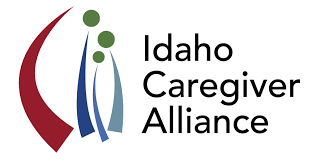As a caregiver, we often feel that it is more important to take care of our loved ones and not focus on ourselves; this couldn’t be farther from the truth. Research has shown us that being a caregiver is one of the most stressful jobs anyone can have. You have to balance the needs of your loved one, the world around you, and yourself. You may become hyper-aware of the possibility of challenges and/or dangerous situations. Often, it is easy to fall victim to removing self-care from your daily routine without even realizing it. Increasing the likelihood of chronic medical and mental health challenges.
There is evidence that about one-third of caregivers report neither strain nor negative health effects from caring for their loved ones. This often occurs during the beginning stages of caregiving.
What factors influence mental health struggles in caregivers?
Research has shown a greater risk of depression, stress, and lower well-being of caregivers when:
They are caring for someone:
- With behavioral problems
- With cognitive impairment
- With functional disabilities
- For whom duration and amount of care need are greater
When the caregiver meets the following criteria:
- The caregiver is older
- There is a spousal relationship between caregiver and care recipient
- The caregiver is female
How do you know that you are struggling with your mental health when you are caring for a loved one?
It is estimated that between 40% and 70% of caregivers have clinically significant symptoms of depression. Up to half of these caregivers may struggle with major depression. Signs of depression include:
- Withdrawal from friends, family, and other loved ones
- Loss of interest in activities previously enjoyed
- Feeling down, irritable, or helpless
- Changes in appetite, weight, or both
- Changes in sleep patterns
- Emotional and physical exhaustion
How can you support yourself as a caregiver?
It is so important to take the time to focus on yourself. We have some support suggestions for you.
- Family Caregiver Navigator Program connects caregivers to community resources that focus on their needs. You would be matched with a personal navigator who will continue to support you throughout your journey in the program.
- Self Care apps Use these highly recommended self-care apps to remind yourself to take care of yourself.
- Join support groups for caregivers on Facebook and in-person. There are several support groups for caregivers of all kinds. You can find a list of support groups in our Resource Library.

